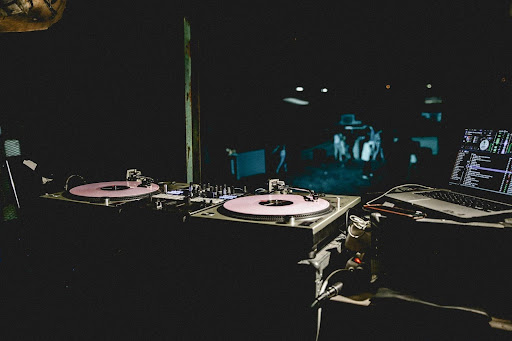Exploring the Influence of Music on Gambling Behavior
Exploring the Influence of Music on Gambling Behavior
Music is a universal language accompanying us in various aspects of our daily lives. Whether commuting to work, exercising at the gym, or relaxing at home, people often turn to music to enhance their experiences.
Likewise, casinos have long recognized the powerful influence of music on human behavior. As people enjoy listening to music while performing everyday tasks, gamblers find music enhances their gaming experiences. The use of soundtracks in casinos creates an immersive atmosphere that increases excitement and keeps players engaged.
Tempo and Pacing
Tempo is one of the most significant aspects of music affecting gambling behavior. Fast-paced music tends to increase arousal and excitement levels. It can encourage quicker decision-making and more aggressive betting in a casino setting. The rapid beats and energizing rhythm may lead gamblers to take more risks, spending money faster than they might under normal circumstances.
Conversely, slow-tempo music can have a calming effect, potentially reducing the pace at which individuals gamble. The slower pace might lead to more thoughtful decision-making and a more prolonged gaming experience.
Volume and Intensity
Volume plays a crucial role in shaping the gambling environment. Loud music can create a sense of urgency and immersion, making the gambling experience more intense. High volumes are often used in casinos to drown out the sounds of other players, creating a sense of isolation where gamblers focus solely on their game.
The sensory overload can lead to longer gambling sessions and increased spending as players become more engrossed in the activity. In contrast, softer music can create a relaxed atmosphere, encouraging social interaction and a more leisurely gambling experience.
Memory and Association
Music can trigger memories and associations, significantly influencing gambling behavior. Familiar tunes evoke nostalgia and comfort, encouraging players to spend longer. Casinos play well-known songs to create a welcoming environment, making the venue feel more inviting.
When players hear these songs, they evoke pleasant memories, positively associating with the casino and building customer loyalty. The emotional connection subtly encourages longer stays as players are reminded of positive experiences tied to the music.
In addition, the best online casinos often use consistent victory sounds or slot-winning music to create a joyful and rewarding experience. These sounds are designed to be instantly recognizable and evoke happiness and excitement.
The familiar jingle of a slot machine payout can make players feel a sense of accomplishment and joy, reinforcing their desire to continue playing. It helps online casinos create a memorable and enjoyable gaming experience, fostering a strong emotional connection that encourages players to return.
Genre and Emotional Impact
The genre of music selected for gambling venues is not random; it is strategically chosen to evoke specific emotions. Upbeat genres like pop and electronic dance music (EDM) are commonly played in casinos because they generate feelings of excitement and pleasure. The fast rhythms and catchy melodies of pop and EDM create a lively and energetic environment, making gamblers feel more enthusiastic and willing to take risks.
Upbeat music is not just about creating a fun atmosphere. It also works on a psychological level by increasing arousal and dopamine release, which can make gambling more thrilling and addictive. When people are excited, they tend to make quicker decisions and engage more deeply with their activities. In a casino, this means more frequent and larger bets.
On the other hand, genres such as jazz or classical music might be used in more sophisticated gambling settings, aiming to create a luxurious and relaxing ambiance that appeals to high-stakes gamblers seeking an elite experience.
Psychological Manipulation
With their bright lights and engaging soundtracks, Arcades offers a clear example of how music influences gambling behavior. The music in these settings is often fast-paced and repetitive, designed to keep players engaged and excited. The constant auditory stimulation can create a sense of urgency and competition, prompting players to spend more time and money on games.
Furthermore, specific sound effects, such as the jingles that play when a player wins, can provide immediate gratification and reinforce positive behavior. This reinforcement loop can make players more likely to continue gambling in pursuit of that next rewarding sound.
Conclusion
The influence of music on gambling behavior is multifaceted, touching on tempo, volume, genre, memory, and psychological manipulation. Casinos and arcades have long harnessed these elements to create environments that enhance the gambling experience. By carefully selecting and controlling the music, these venues can influence how players feel, think, and behave, ultimately encouraging longer play and higher spending.
Understanding these dynamics not only illuminates the strategies used by gambling establishments but also highlights the broader psychological effects of music. As research into the impact of music on behavior continues to evolve, it becomes clear that the auditory environment is a powerful tool capable of shaping human actions and emotions in profound ways.
